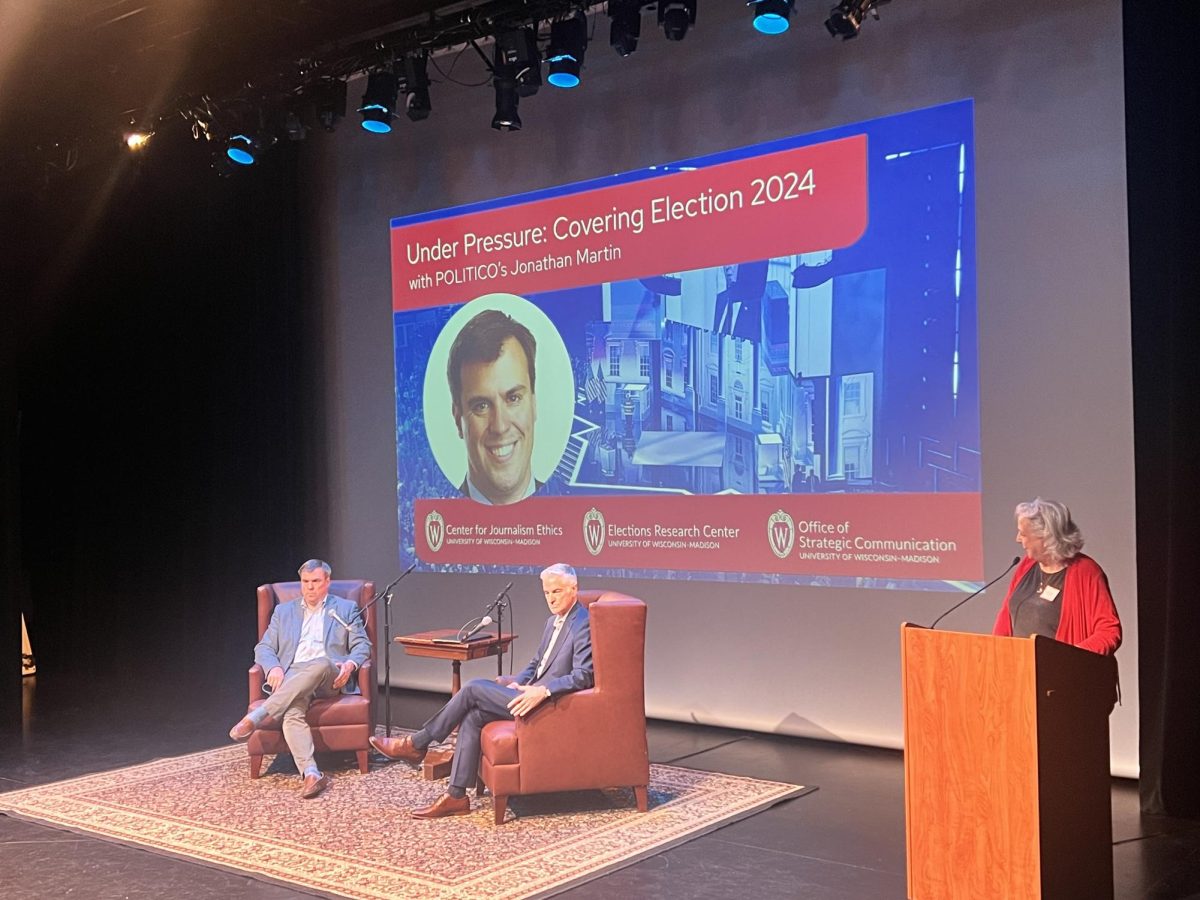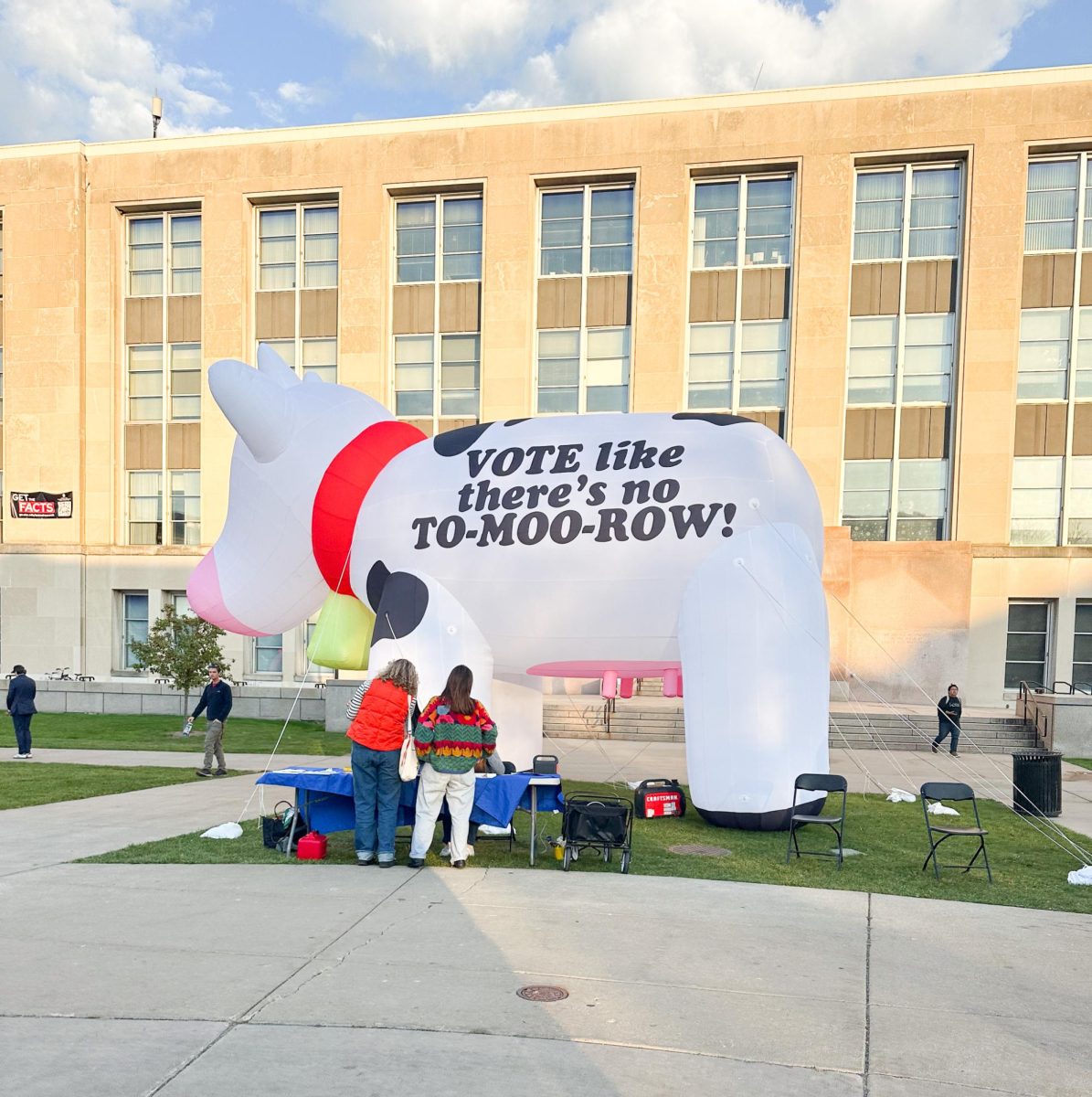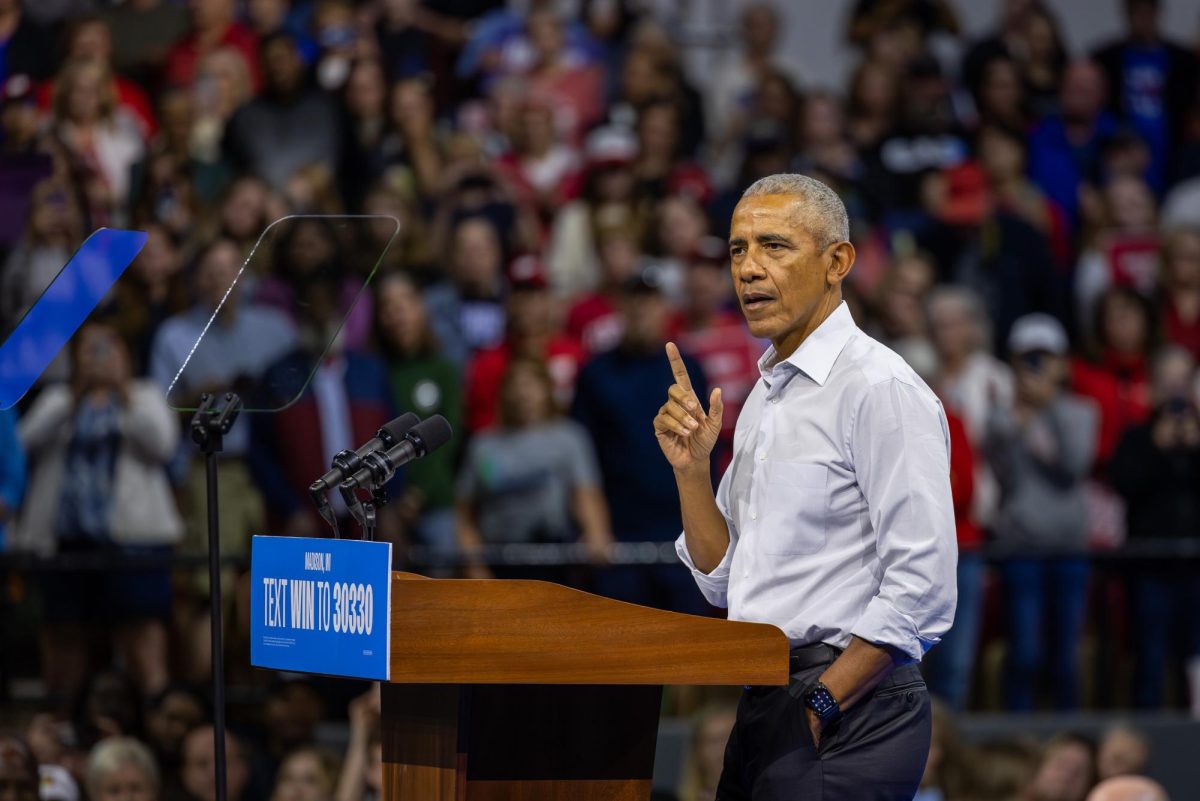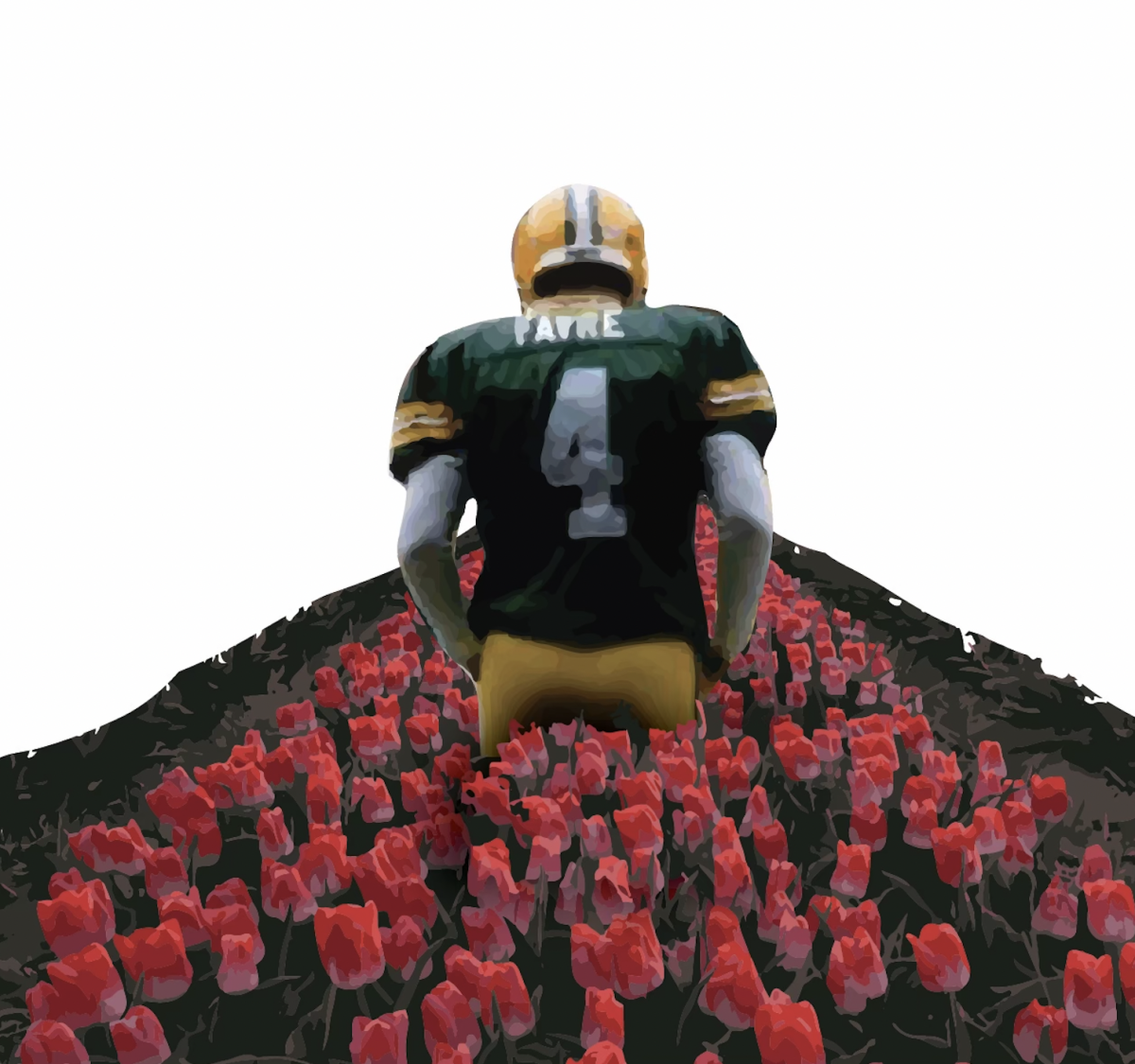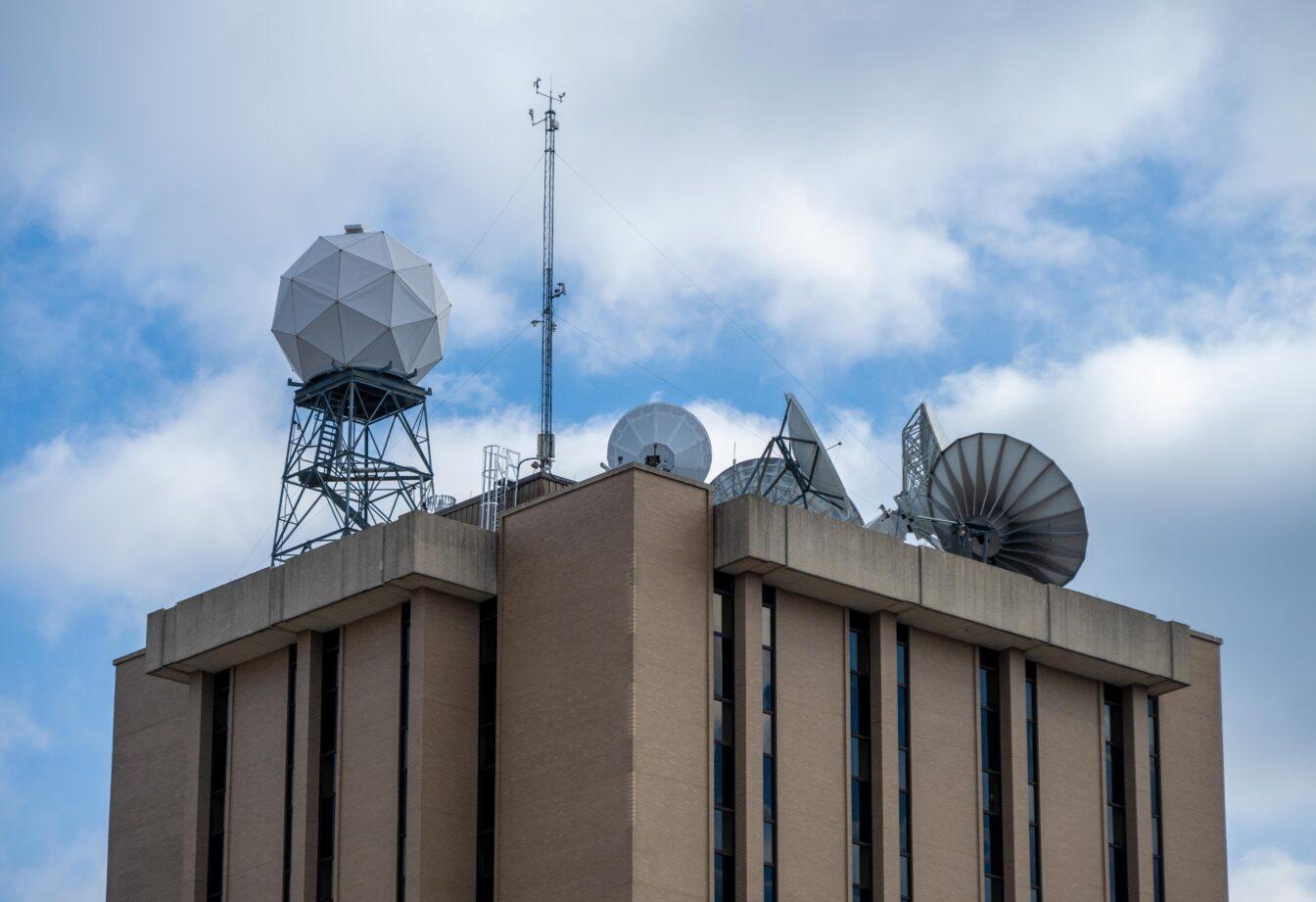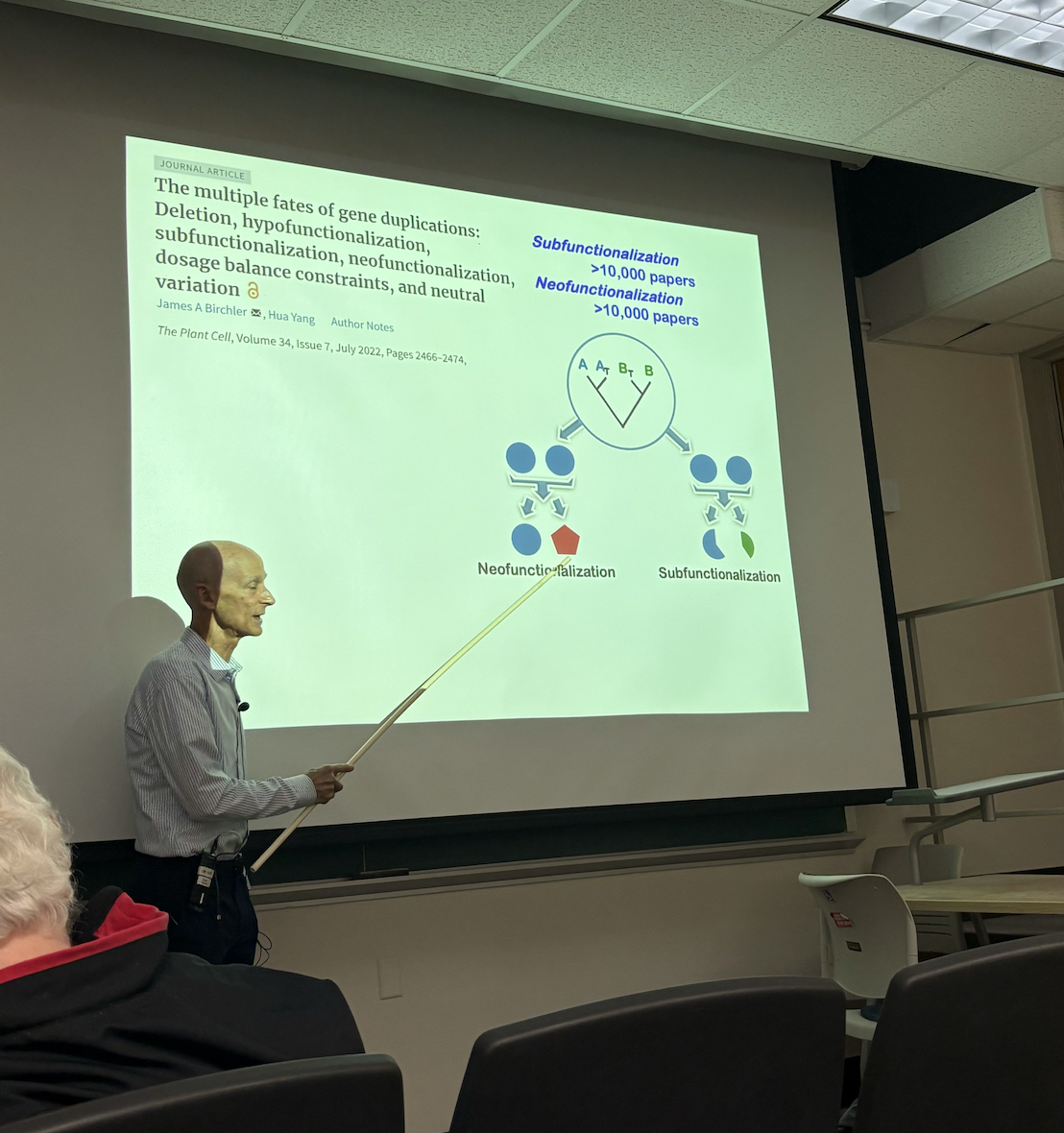Advertising is a key component of campaign strategies in an election cycle. This year, political campaigns are spending record amounts of money on advertising, according to NPR.
Beyond the incessant TV commercials and candidate approved messages, campaigns and politicians spend so much money on political advertising because it is a successful strategy for swaying some undecided voters, according to School of Journalism and Mass Communications Professor Douglas McLeod.
Behind bars: UW researcher studies how incarceration affects individual, community health
McLeod said despite the massive funding dedicated to political advertising, it does not influence the vast majority of voters’ decisions but can be influential towards some swing voters. Most voters make a decision based on partisan identity or other factors regardless of political ads.
Political advertisements’ inability to sway voters to support certain candidates may arise from psychological factors. School of Journalism and Mass Communications Professor Chris Cascio studies persuasion and social influence, particularly in the media.
Cascio said regardless of the message, in order for an ad to lead to behavioral changes — like deciding who to vote for— it must trigger mechanisms in the brain that respond to rewards. He said most political advertising does not display the qualities that any message needs to be persuasive — value and self-relevance.
“[The message] is something that is near and dear to me in terms of the value, and then that self component is like it’s close to me as well,” Cascio said. “So any sort of information that seems to tie into that system seems to increase the likelihood that people are going to go on to change their behavior.”
Rather than swaying the masses, political advertising is used to generate funds, by mobilizing people to donate and influencing undecided swing voters, according to McLeod.
DNR, DATCP kick off program to collect, dispose of PFAS-containing firefighting foam
McLeod said advertisements can sway undecided voters to vote in the first place and sway them to vote for the desired candidate.
“In our system, it can be 51 to 49,” McLeod said. “So sometimes those small numbers of swing voters who actually make up their mind later, both in terms of whether to vote and who to vote for, are actually influential. And so that’s where political advertising has its influence.”
Cascio said political advertisements may use emotional elements to mobilize voters and “get people riled up.” The emotional aspect of a message can be useful in altering short term behaviors. The traditional models psychologists use to understand persuasion suggest that short term persuasion methods relate to a person’s mood or feelings, which only last a short while themselves, Cascio said.
Some political ads that make particular use of emotional messaging are negative ads.
“Everything’s attack ads, and very little is on thinking about issues,” Cascio said.
Climate change negatively affects Wisconsin residents’ health
McLeod said while the public has a general distaste for negative ads, they are overall effective. Sometimes negative ads can influence a voter to vote against a certain candidate or simply to not vote at all. Perceived barriers to voting, like taking time off work, and voter intimidation can particularly influence these outcomes.
It’s easier to discourage someone to vote if they feel intimidated or have to wait in a long line, McLeod said. Under conditions where it’s difficult to vote, like waiting in lines and needing time off work, messages are designed to make people think it’s not worth the trouble of voting because they don’t like a certain candidate that much.
Political ads can also be targeted to certain communities to minimize turnout. Professor in the School of Journalism and Mass Communication Young Mie Kim found evidence of targeted voter suppression in the 2016 election through disinformation advertisements from Russian actors, according to The Badger Herald.
Using similar strategies of attack ads, these advertisements were designed to emphasize barriers to voting or even promote a voting boycott to influence people not to vote, according to The Badger Herald.
The massive amounts of money going towards advertising can produce desirable outcomes for a campaign, but in reality, other factors like misinformation can sway voters just as well, according to McLeod. Making the use of political advertisements both a strategy for politicians and a nuisance to the public.
The Lab Report: Using social psychology to create equity in classrooms
“It’s a lot of resources going to support political advertising,” McLeod said. “There is some learning from political advertising, but there’s also as much learning from disinformation and misinformation. That is kind of a negative. So that, to me is, the big story — it seems to be a waste of money.”




